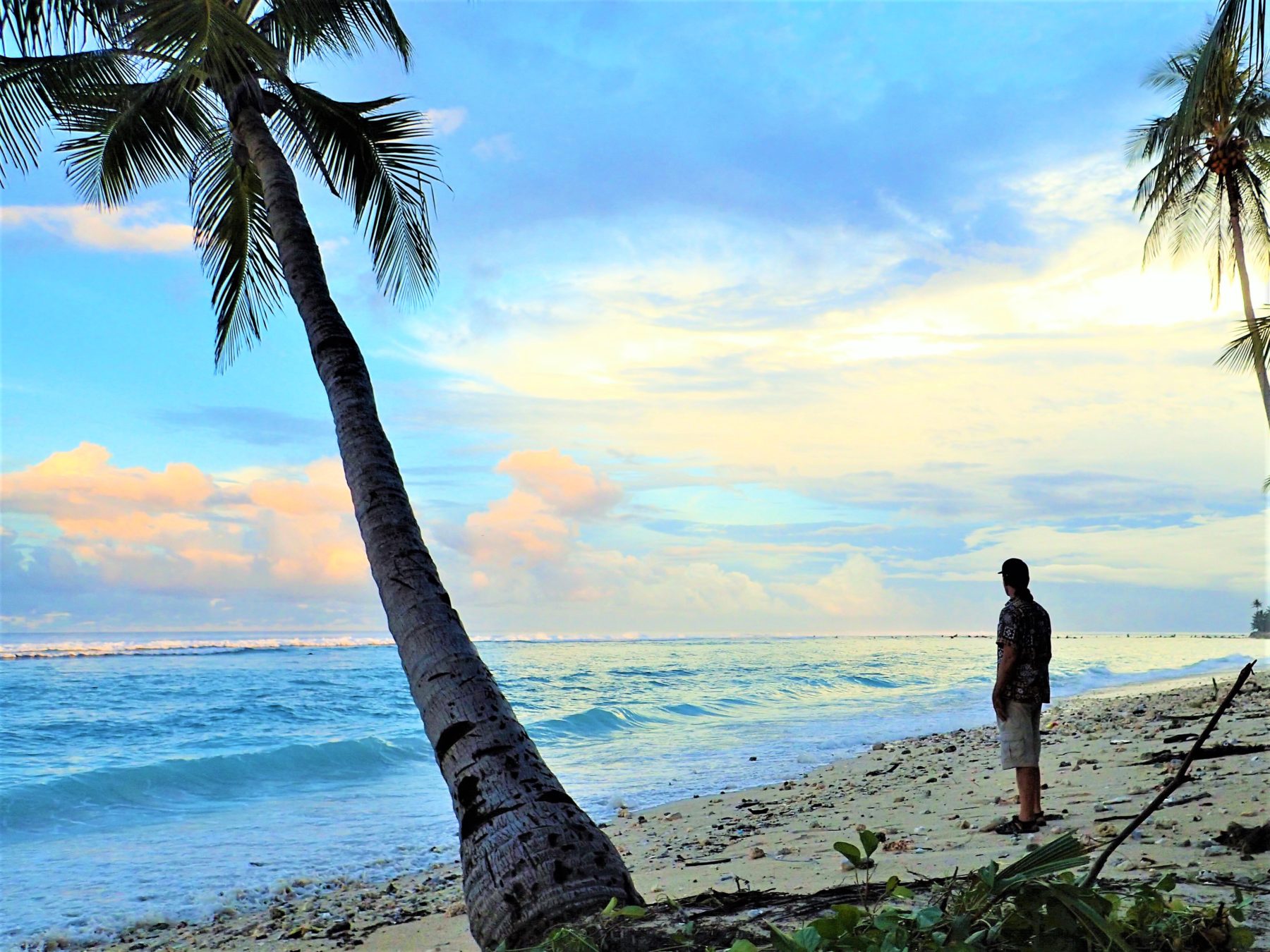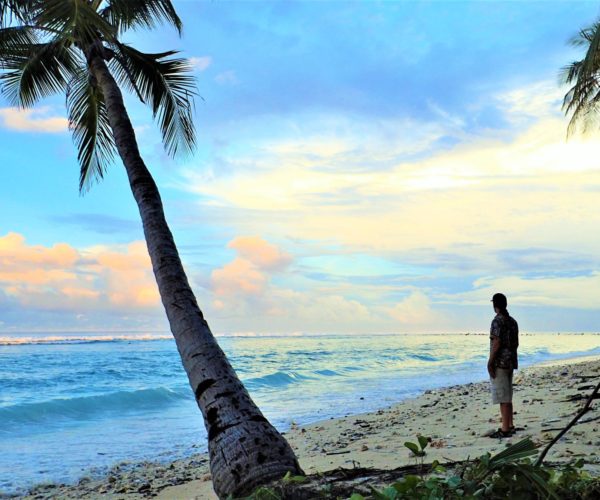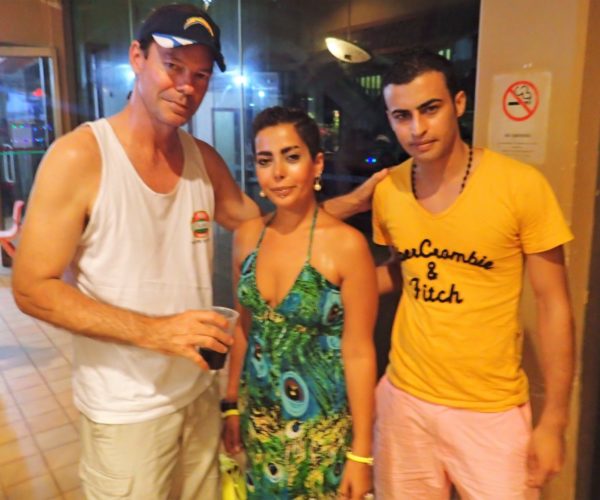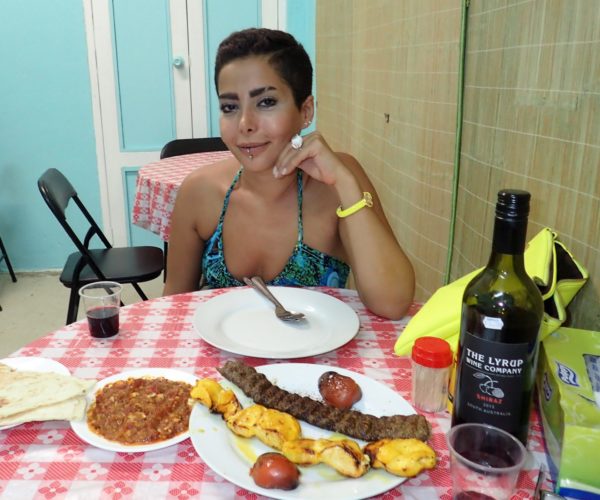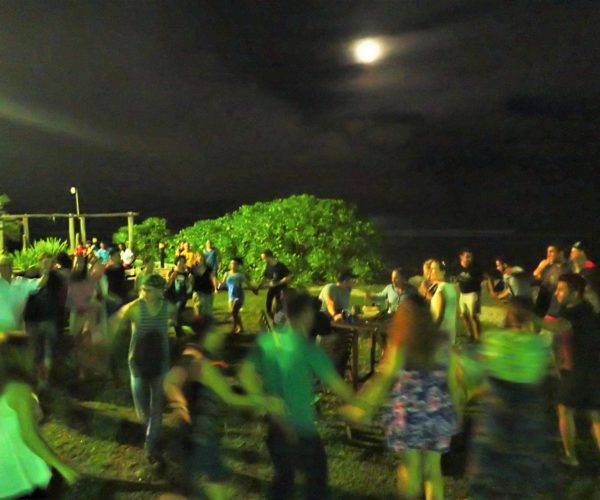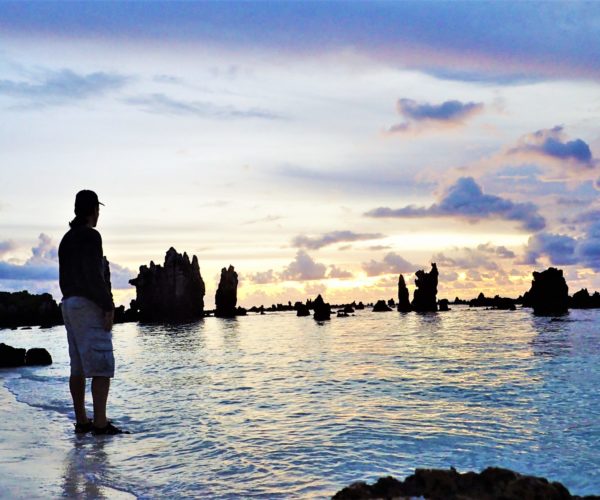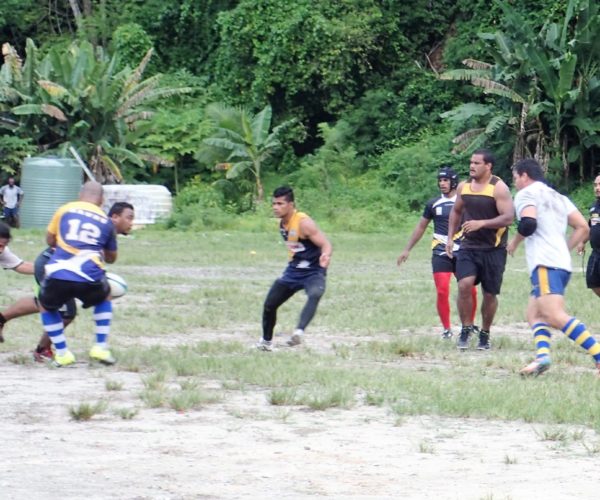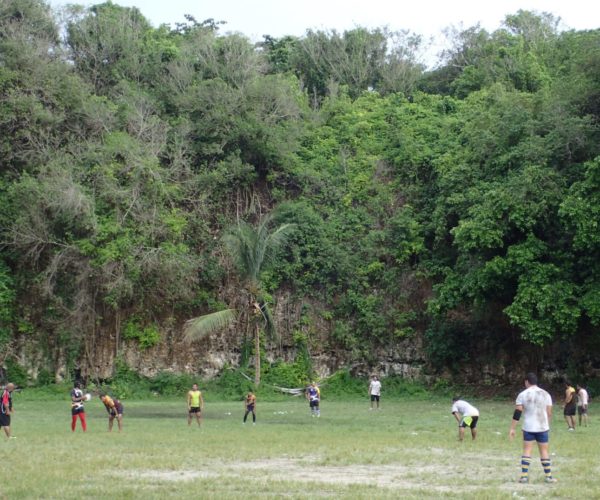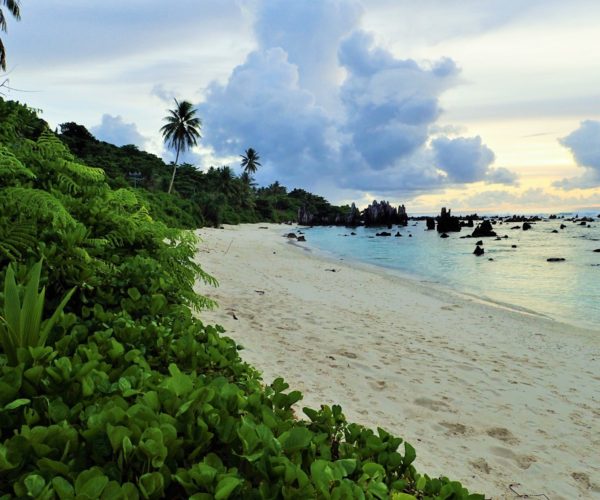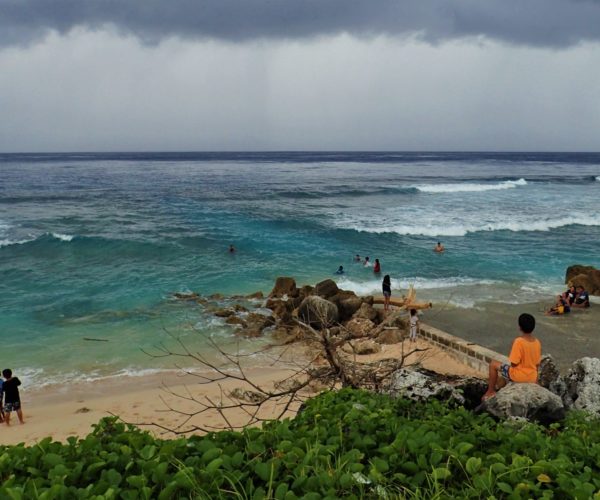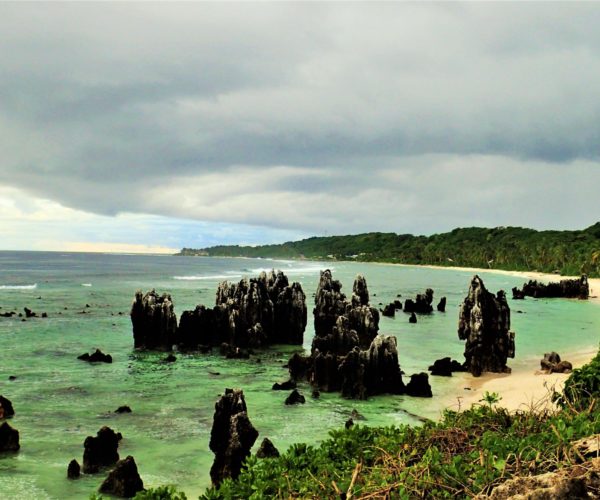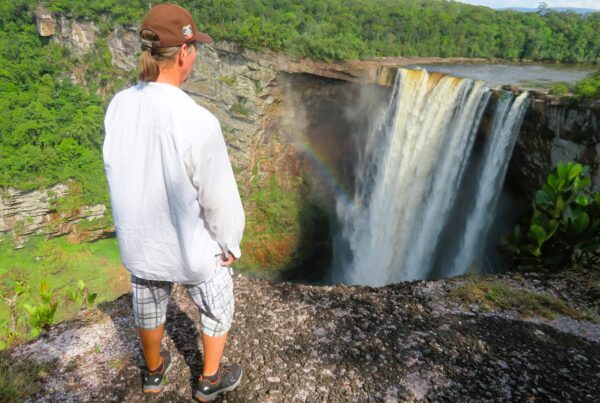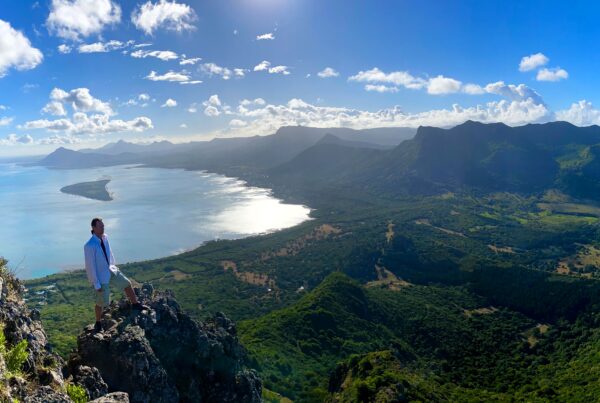
NAURU
“What’s the world’s least visited country, Kim? Yep, you got it, Nauru!”
First of all, the locals pronounce it “Nah-Roo.” And Nauru is located in the middle of the Pacific Ocean, two thousand miles northeast of Brisbane, Australia. With only one airline flying there for twelve hundred US dollars a pop, it’s easy to understand why only a handful of tourists visit each year. With so few people visiting Nauru, the travel forums had very little information about the visa, how to get there, and where to stay. And the Nauru Airlines and tourism websites didn’t respond to my questions.
So, during my Kim’s View tour of Australia in December 2014, I did a reconnaissance mission at the Nauru Consulate in Brisbane. The consulate staff told me, “you don’t need a tourist visa.” And after hearing the good news, I shelled out twelve hundred bones for a Brisbane-Nauru, round-trip ticket departing in November 2015. I thought I was good to go.
Nauru is known for two things; phosphate mining, and refugees. The Australian government pays Nauru to house refugees that tried to make it to Australia by boat. The Nauru detention center that holds these asylum seekers is highly political, and controversial, to say the least.
In the year since I visited the Nauru consulate, the situation had changed drastically. Now the front pages of the Aussie newspapers had stories of the Nauru refugees being raped, and the children boycotting school. The Nauru government jacked up the price of a journalist’s visa from eight hundred dollars, to eight thousand dollars. At Nauru Airlines check-in, one of the staff dusted off an old Aussie WWII joke.
“You Yanks are over-sexed, over-paid, and over here!”
My laughter quickly turned to disappointment though. His coworker wasn’t as jovial, and she refused to check me in.
“You need a letter from the Nauru consulate saying you’re approved for visa-on-arrival.”
I pleaded with her, “but the consulate staff told me I didn’t need a visa.”
“The visa situation has changed since last year.”
I was screwed. I had to re-book my flight, and go back to the Nauru consulate to get permission for a visa-on-arrival. This time they had a visa application form, and after sending them copies of my passport and hotel reservation, multiple times, I received my “visa approval.”
After finally touching down in Nauru, I checked into my one-hundred-dollar-a-night apartment. Since there was no public transportation, I rented one of their cars, too. So much for backpacking on a budget in Nauru. Within an hour, I burned through three hundred dollars.
At the grocery store below my apartment, I met Sahar, an Iranian refugee, wearing a long, colorful dress, and carrying a neon green purse. Obviously, she wasn’t a local, but I was expecting the refugees to be, well, poor. And not Iranian. Iran isn’t a poor country, what’s going on?
I read a feel-good story in the Brisbane newspaper about a refugee family that started an Iranian restaurant in Nauru. Sahar took me to that restaurant, the Persian Gold, for my first meal in Nauru. While I was eating with this beautiful Iranian rebel (not the battlefield kind) I kept thinking, nobody is going to believe this story.
Sahar told me a local girl stole her iPhone, and stupidly posted a selfie. When Sahar went to the Nauru police with the evidence, the local girl said it was her cousin. The police did nothing.
After dinner, we went to a farewell party hosted by the NGO, Save The Children, whose staff were returning to Sydney after spending nine weeks working with the refugees.
“I don’t believe in God” Sahar said. She had lived in Nauru’s detention center for over two years. If she went back to Iran, she would be arrested, and her family would have to pay a huge bribe to the police to get her out. Previously, she had been deported from Bali after her fake passport was confiscated.
Sahar’s friend, Ali, told me, “I’m a Christian. Back home in Iran, the police beat me because I’m a Christian.” He had slept on a cot in the detention center, without a fan, or a mosquito net, for two years already. Ali came to Nauru with his sister and her family. They were granted asylum in Australia, but Ali was denied asylum, which is typical for single males.
I didn’t know what to say to Sahar, and Ali. Even ‘hang in there’ seemed totally inappropriate. I’m free to travel the world, and practice whatever religion I please. I felt guilty, and extremely fortunate, at the same time. My previous frustration with Nauru Airlines, and having to return to the Nauru consulate to get a free visa, seemed so trivial now.
The next day I drove around the whole island in less than ten minutes. I stumbled upon a field where the locals were playing rugby. Serious rugby, with a referee, and scrums, and teams warming up for the next match. The pitch had more gravel, than grass. Yet another South Pacific nation with tough-as-nails athletes.
What a horrible existence, Kim. It’s hard to imagine being stuck on a tiny island, without the ability to go to another country, and unable to go home because you’ll be thrown in jail. No wonder many of the refugees have lost hope, with some taking extreme measures, like self-immolation!
My weekend in Nauru cost over fifteen hundred bucks. Maybe mom and dad, among others, think I’m crazy for “wasting” that much money. But now we have a Kim’s View in all the remote island-nations of Oceania. So for me, it’s mission accomplished. Yahooooo! And from now on, every time our epic journey gets temporarily sidetracked, or someone tries to rip me off and I’m feeling sorry for myself, I’ll just remember Sahar and Ali stuck in Nauru.


